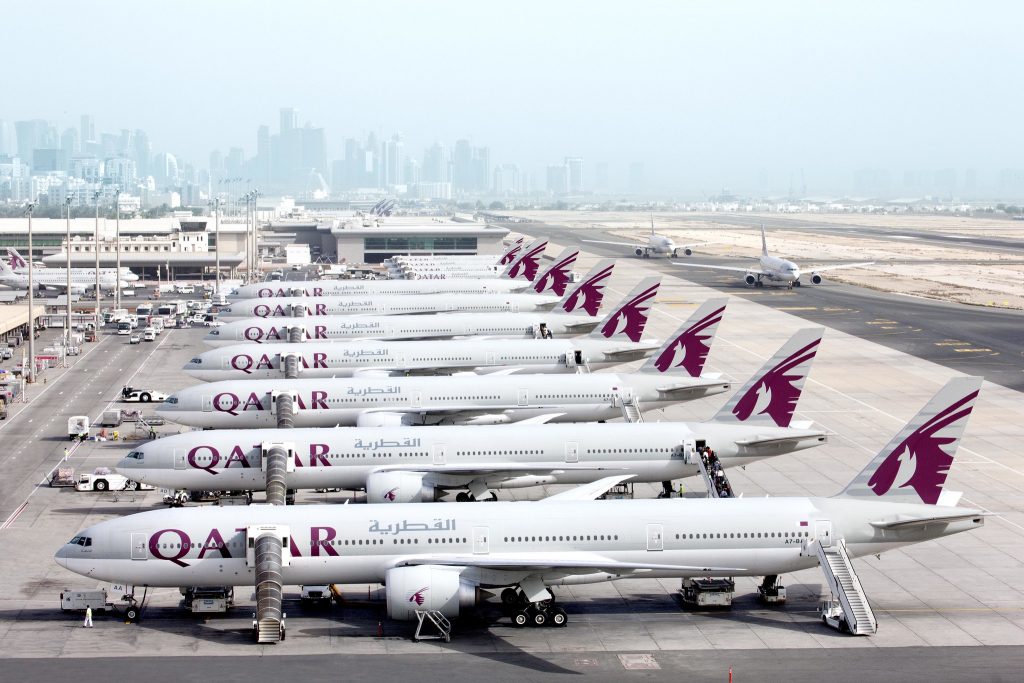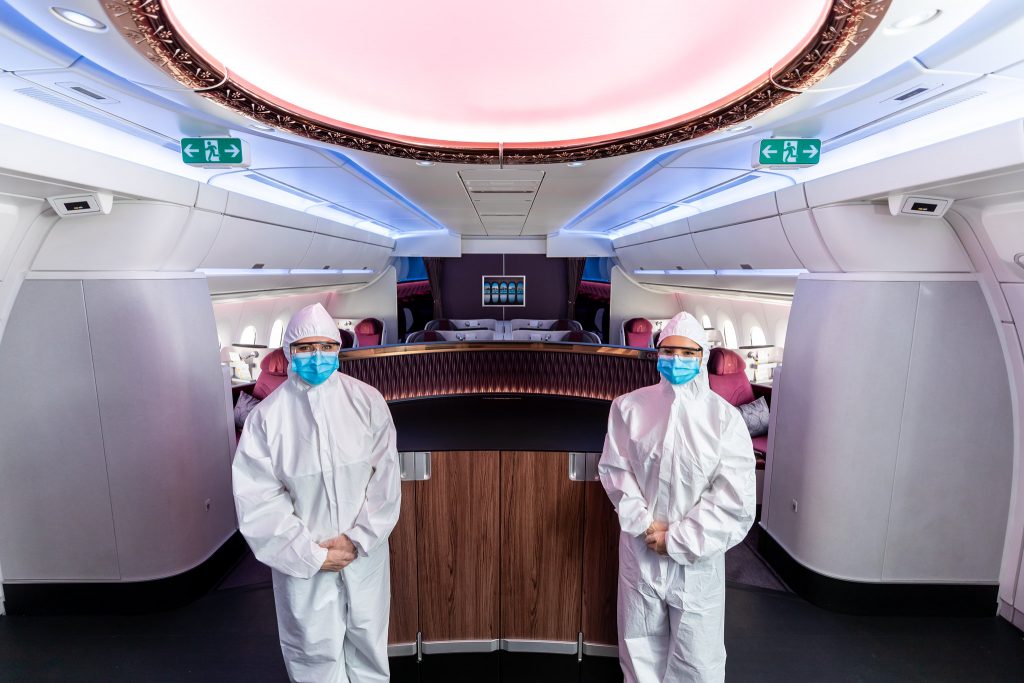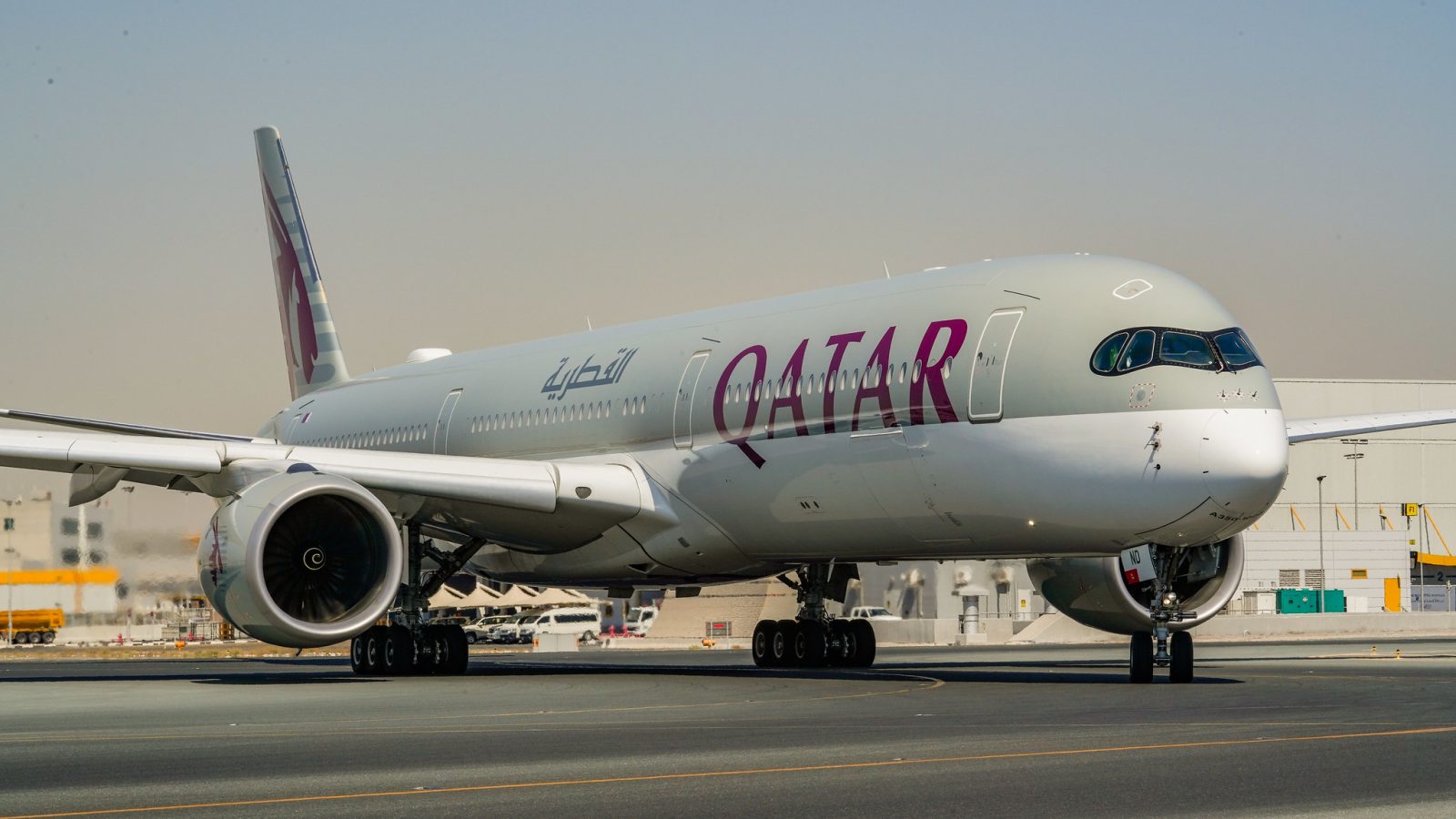European aircraft manufacturer Airbus delivered three brand new A350-1000 widebody jets to Qatar Airways on Thursday despite chief executive Akbar Al Baker saying only weeks ago that the Doha-based airline had no intention of taking any new deliveries until 2022 at the earliest. The deliveries make Qatar Airways by far the largest operator of A350’s with 52 now in its fleet.
“As one of the only airlines to continue taking delivery of new aircraft at this time, our strategic investment in modern, fuel-efficient twin-engine aircraft has enabled us to continue flying taking over 2.3 million people home on more than 37,000 flights since the start of the pandemic,” Al Baker said of the new deliveries.

In September, Al Baker, however, said the government-owned airline wouldn’t take delivery of new jets because it already had a massive surplus of grounded planes as a result of the COVID-19 pandemic.
Issuing a threat to both Airbus and rival aircraft manufacturer Boeing, the often outspoken chief executive threatened to stop doing business with companies that refused to defer orders.
Aircraft manufacturers “have to oblige their customers in difficult times,” Al Baker told a CAPA aviation conference. “They can’t just benefit from us in good times,” he continued, before revealing that a deal over aircraft deferrals had been done with Airbus. At the time, negotiations with Chicago-headquartered Boeing were continuing.
The deal with Airbus likely involved the delivery of the three A350-1000 aircraft that were nearing completion. It’s not yet known whether Qatar Airways has agreed to take delivery on any more aircraft that were already on the assembly line.
The airline now has an outstanding order for 24 Airbus A350-100 aircraft valued at $366 million each at list price. An order for 50 single-aisle A321neo is also expected to be delivered over the next few years, while Qatar Airways has a total of 88 aircraft on order with Boeing.

Al Baker was eager to speak up the benefits of the A350-1000 on Thursday, saying it was far more environmentally friendly than the double-deck Airbus A380 that many airlines have grounded as a result of Corona crisis. Qatar’s own fleet of A380’s will remain in longterm storage for the foreseeable future, while regional rival Emirates has started to deploy the superjumbo on select routes.
“Rather than being forced to fly oversized aircraft due to limited aircraft options, reducing the flexibility for passengers to travel when they want, Qatar Airways has a variety of sustainable aircraft it can choose from to offer more flights with the right capacity in each market,” Al Baker said in a thinly veiled jab at Emirates.
“Passengers can also rely on our airline operate an honest schedule of flights with our mixed fleet giving us the ability to maintain services, and upgrade or downgrade aircraft size depending on passenger demand,” he continued as he hit out at airlines that have turned to cancelling flights at short notice because of low passenger numbers.
On a typical one-way flight, the airline’s internal analysis found the A350 aircraft saved a minimum of 16 tonnes of carbon dioxide per block hour compared to the A380.
Comparing the A380 and A350 on routes from Doha to London, Guangzhou, Frankfurt, Paris, Melbourne, Sydney and New York, the airline claims the A380 emitted over 80 per cent more CO2 per block hour, while on the Melbourne and New York routes the A380 emitted 95 per cent more CO2 per block hour.
Last month, Qatar Airways posted a $1.9 billion loss for the 2019/2020 financial year – its worst performance in the history of the airline. The airline has so far received $2 billion in government-funded bailouts to survive the Corona crisis.
Mateusz Maszczynski honed his skills as an international flight attendant at the most prominent airline in the Middle East and has been flying ever since... most recently for a well known European airline. Matt is passionate about the aviation industry and has become an expert in passenger experience and human-centric stories. Always keeping an ear close to the ground, Matt's industry insights, analysis and news coverage is frequently relied upon by some of the biggest names in journalism.








